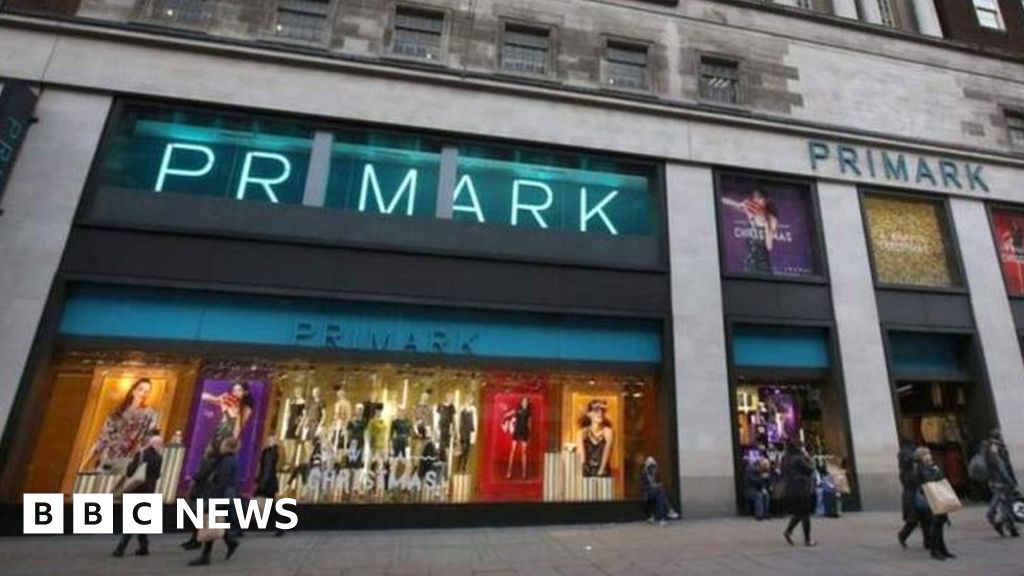
Primark's 189 UK stores have closed "until further notice", as demand drops due to social-distancing during the coronavirus pandemic.
It has already shut stores elsewhere and said it wanted to protect the health of employees and customers.
The fashion chain's CEO Paul Marchant said it faces "unprecedented, and frankly unimaginable times".
Other High Street retailers, such as John Lewis and Timpson, have already announced closures amid the pandemic.
A Primark spokesperson said that any staff affected by store closures would receive full pay for their contracted hours for 14 days.
Meanwhile the John Lewis department store chain will close all of its 50 shops temporarily from Monday for the first time in its 155-year history.
The online site will still be available, while the group's 338 Waitrose stores will stay open to deal with a spike in demand for groceries. More than 2,000 John Lewis workers are already working across Waitrose.
Other retailers have said that they would shut their shops temporarily although government has not yet ordered them to close, unlike restaurants, bars and pubs.
The chief executive of the Timpson Group posted on social media that the shoe repair firm's 2,150 stores would shut from Monday.
Others include:
- HMV: The British music retailer will close stores temporarily from Sunday
- Arcadia Group: The group, which includes Topshop and Miss Selfridge, closed all of its stores on Friday until further notice
- New Look: The clothing store shut its 500 UK stores on Saturday
- Kurt Geiger: Its 55 shoe shops across the UK and Ireland stopped trading on Saturday
- River Island: All of its clothing stores across the UK and Ireland are closed until further notice
Branches of WH Smith, Next and B&Q are among retailers to remain open.
James Daunt, the boss of Waterstones, said his bookshops provided an "important social resource" and would stay open until forced to close.
As many UK firms warn of the impact of the pandemic, the city watchdog has asked them not to publish preliminary financial statements that were due in the next few days.
The Financial Conduct Authority (FCA) asked all listed companies to delay plans to publish by at least two weeks.
Primark stores across the US, France, Spain and Italy have already shut their doors to try to contain the spread of the virus.
In response to falling demand, the firm has now stopped placing any orders for clothes to be made in the future.
It also has a large amount of stock in stores, warehouses and in transit that has already been paid for.
'No option' left
Mr Marchant said that Primark had been left with "no option but to take this action".
He added: "This is profoundly upsetting for me personally and for all of the team... We recognise and are deeply saddened that this will have an effect throughout our entire supply chain."
Primark does not have an online sales operation, so it orders and sells vast quantities of clothing through its network of brick-and-mortar shops.
Mr Marchant called for other countries to support businesses "in the same way that the UK and many European governments are doing."
The UK government said this week it will pay the wages of employees unable to work due to the coronavirus pandemic, in a move aimed at protecting people's jobs.
It will pay 80% of salary for staff who are kept on by their employer, covering wages of up to £2,500 a month.
Many retail and hospitality firms have warned the pandemic could see them collapse, wiping out thousands of jobs, as life in the UK is put on hold.
Tom Ironside, director of business and regulation at the British Retail Consortium, said that shops continue to follow government advice.
"Stores are reviewing Public Health England advice daily to decide what is best to do for their customers, staff and local communities."
He said that although "retailers in non-food areas have seen an unparalleled drop in footfall", others such as supermarkets have seen continued strong demand.
https://news.google.com/__i/rss/rd/articles/CBMiKmh0dHBzOi8vd3d3LmJiYy5jb20vbmV3cy9idXNpbmVzcy01MTk5NTE4OdIBLmh0dHBzOi8vd3d3LmJiYy5jb20vbmV3cy9hbXAvYnVzaW5lc3MtNTE5OTUxODk?oc=5
2020-03-22 15:22:30Z
52780679435512


